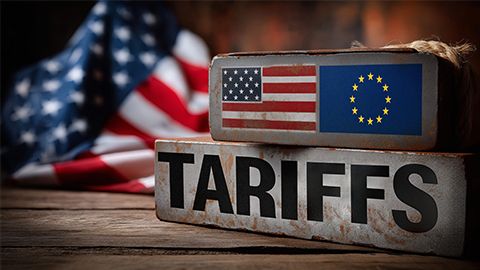Article
Revenge of the retail channel: Valeant cuts a distribution deal with Walgreens
Beleaguered pharma company retreats from specialty distribution
A major pharma company says that its products will be available via a leading pharmacy chain—why is this news? In the case of Valeant, subject of Congressional hearings and a pummeled stock price since October, the announcement signals a partial retreat from the trend toward higher-priced products distributed through restricted-access specialty channels. That could have broader implications for specialty pharmaceutical distribution going forward.
On Dec. 15, Valeant announced a 20-year (!) agreement that it will cut prices for many of its branded products while making them available through the 8,000-location network of Walgreens Alliance Boots, and “additional participating independent pharmacies.” Prices of dermatological and ophthalmological products will be reduced by 10%. Under a separate agreement, more than 30 branded products for which generics are available will be made available at price reductions ranging from 5 to 95% (which Valeant says amounts to a weighted average reduction of around 50%). Overall, the price reductions will take $600 million out of US health system costs (to patients and payers) and, presumably, from Valeant’s bottom line. Nevertheless, investors greeted the news with a >10% boost to Valeant’s stock price.
Part of this action is purely functional: after Valeant severed its ties with a specialty pharmacy, Philidor, with which it had had a financial interest, the company simply needed a way to get its products into the market (Philidor is reportedly shutting its doors in early 2016). Another part of the motivation seems to be image-builiding: Valeant has undergone enormous criticism for its practice of “repricing” older pharmaceuticals, in some cases by hundreds of percentage points, while also cutting back on the R&D spending of the many pharma companies it had acquired over the past several years.
One oddity of the announcement: Valeant says that “Patients with commercial insurance can benefit from lower out-of-pocket costs, such as reduced copays, set to be as low as zero for some products initially, and the program will provide convenient access for patients who lack coverage for the products. Because of government regulation, the cost sharing program will not be applicable to patients with government insurance.” The implication is that Medicare and other public insurance programs won’t benefit from the reduced prices; however, most public insurance pricing is based on manufacturer-reported Average Sales Price (ASP), so some of the savings would pass through regardless. Also unclear is whether other retail chains will seek comparable pricing from Valeant to stock its products.
Overall, the action represents a pullback from the sometimes overly aggressive marketing of specialty products through the agency of specialty pharmacies. There were allegations that Philidor used such techniques to obtain reimbursement of Valeant products even in cases where the payer had restricted access to the drug (such as through high-tier copays). On the flip side, specialty pharmacies are used to ensure better medication adherence and better patient support than is often available through retail pharmacies—and that can have positive implications for overall healthcare costs. Valeant could see increased sales of its now-discounted products, offsetting the price reductions—and that calls the specialty-distribution model into question as well.
Newsletter
Stay ahead in the life sciences industry with Pharmaceutical Commerce, the latest news, trends, and strategies in drug distribution, commercialization, and market access.





